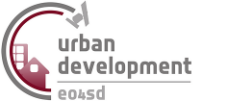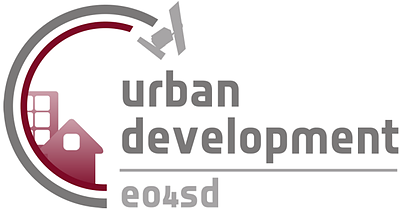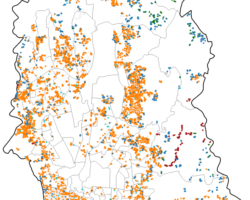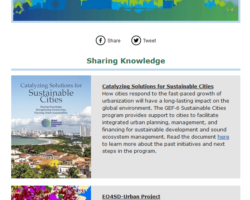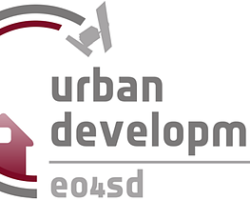As the ESA EO4SD-Urban project is coming to a close in early 2020, a consultative Workshop on the lessons learned from the activity has been organized on 21-22 January 2020 at the World Bank (WB)’s premises in Washington, D.C. In particular, the objectives were:
- To showcase applications, challenges and achievements of EO4SD-Urban and ascertain its sustainability within the WB;
- To elicit additional feedback and insights on the EO4SD-Urban engagement from WB Task Team Leaders (TTLs) who received support under the project;
- To use the lessons learned for better understanding the potential of integrating satellite Earth Observation (EO) into urban development programmes to maximize the impact for client beneficiaries and partners.
On day 1, Dr. S. Wahba – Global Director for the Urban, Disaster Risk Management, Resilience and Land Global Practice – opened the Workshop. In his speech, Dr. Wahba thanked ESA for establishing the partnership with the Bank yet 10 years ago and stressed that a new phase of co-operation focused on capacity building is being planned to improve the uptake of EO-based technologies among WB’s clients.
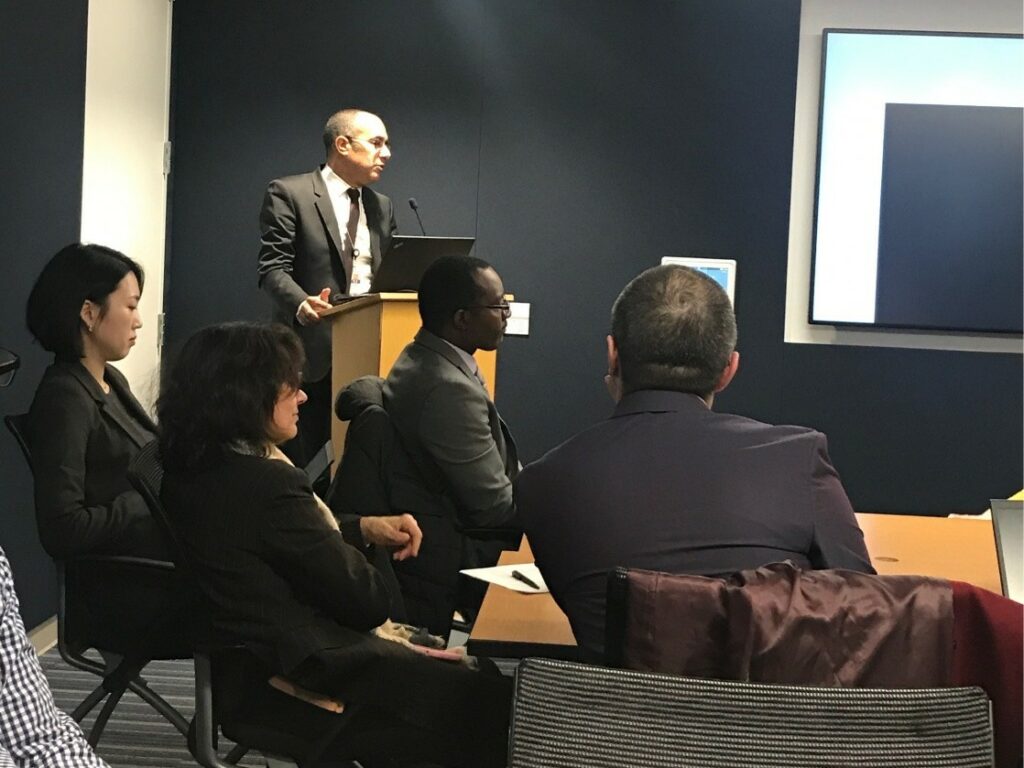
C. Aubrecht – ESA’s representative at the WB – discussed the background of the ESA-WB partnership as well as the Copernicus programme, and presented current plans to advance the EO4SD programme from piloting to mainstreaming.
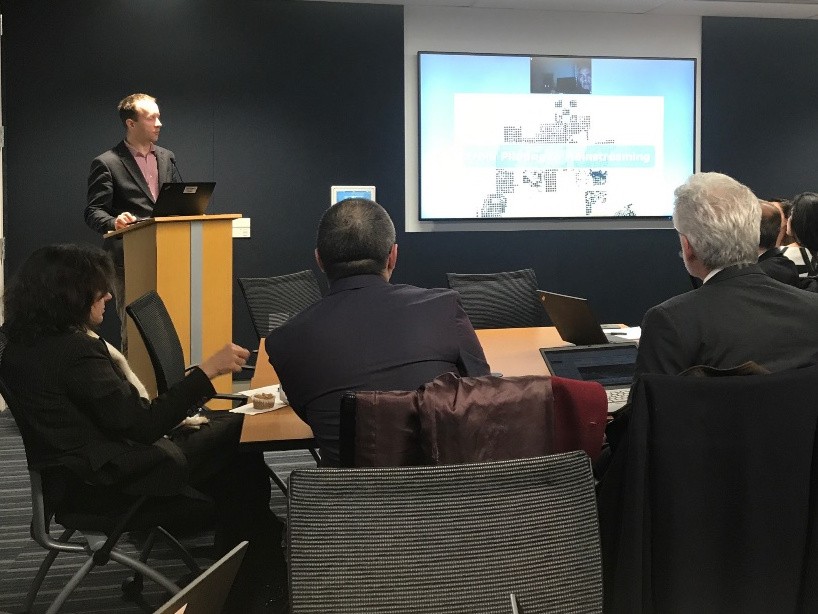
The EO4SD-Urban project manager, T. Haeusler, provided an overview of the activity and its noteworthy achievements. Specifically, EO4SD-Urban supported 3 different International Financial Institutions, which have been provided – for 31 target cities – with more than 450 geo-spatial products. All of these underwent rigorous Quality Control exhibiting remarkable thematic accuracies and are now accessible through the WB’s Data Catalog, the Open Learning Campus, as well as ESA’s Urban Thematic Exploitation Platform (U-TEP). Capacity building was also conducted via webinars, city-specific training and selected regional training.
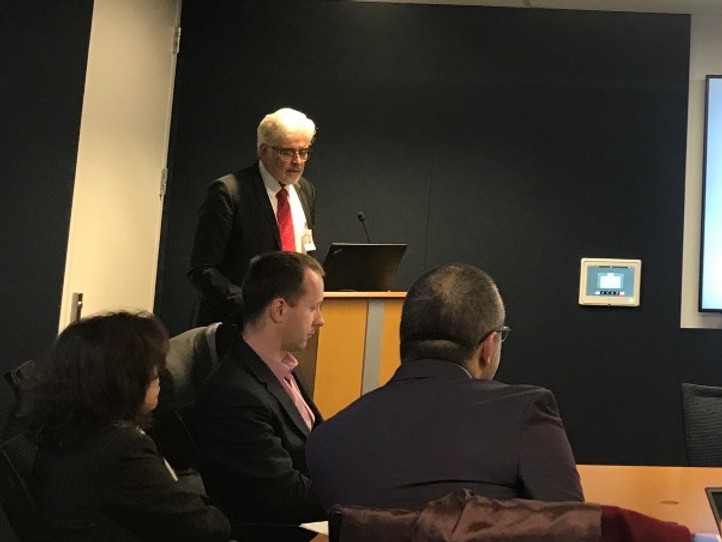
Key to the event has been the round table between two Global Practice Managers (i.e., C. Marulanda and M. Brhane) and two Practice Leads (i.e., S. Lall and N. Holm-Nielsen). In particular, it provided valuable insights on the current utility of EO in support of urban development programmes as well as indications on how to foster the uptake of EO-based applications by both the WB and its clients in the near future (e.g., through an improved coordination for better organizing the demand for geo-spatial products).
On day 2, an interactive demonstration has been given by F. Enssle (GAF AG) and C. Sannier (SIRS); in particular, examples showcased how the EO4SD-Urban products contribute to the assessment of specific Indicators for the UN Sustainable Development Goal 11. Furthermore, the U-TEP platform has been presented and employed to visualize the products and generate analytics tailored to the specific application of interest.
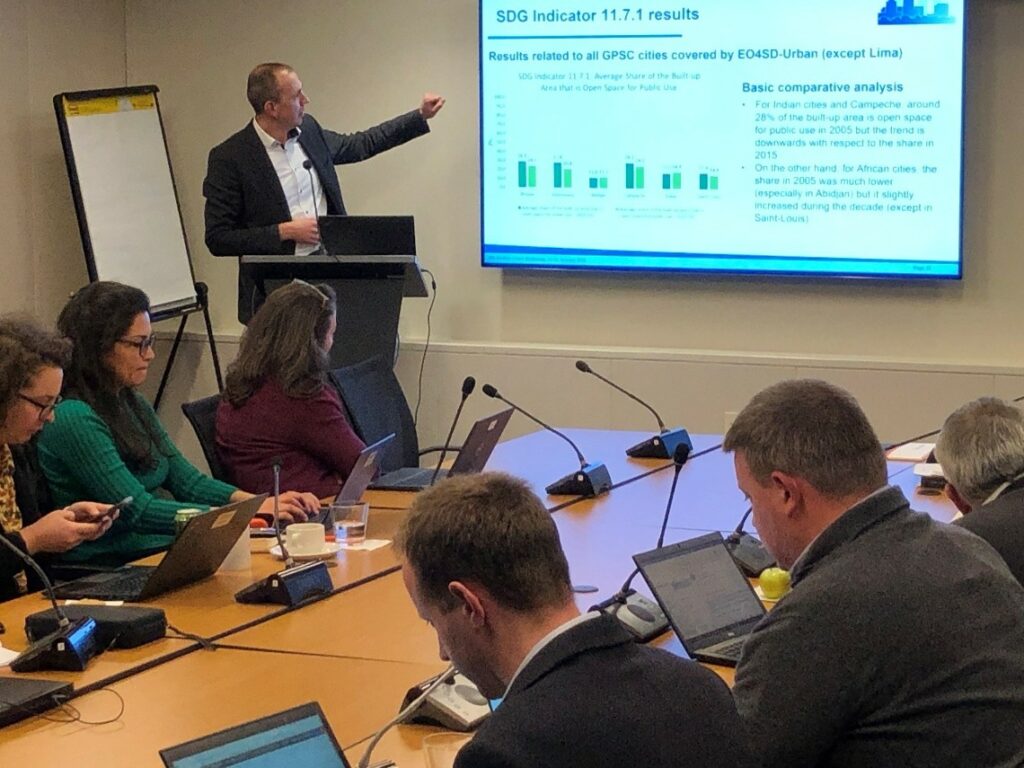
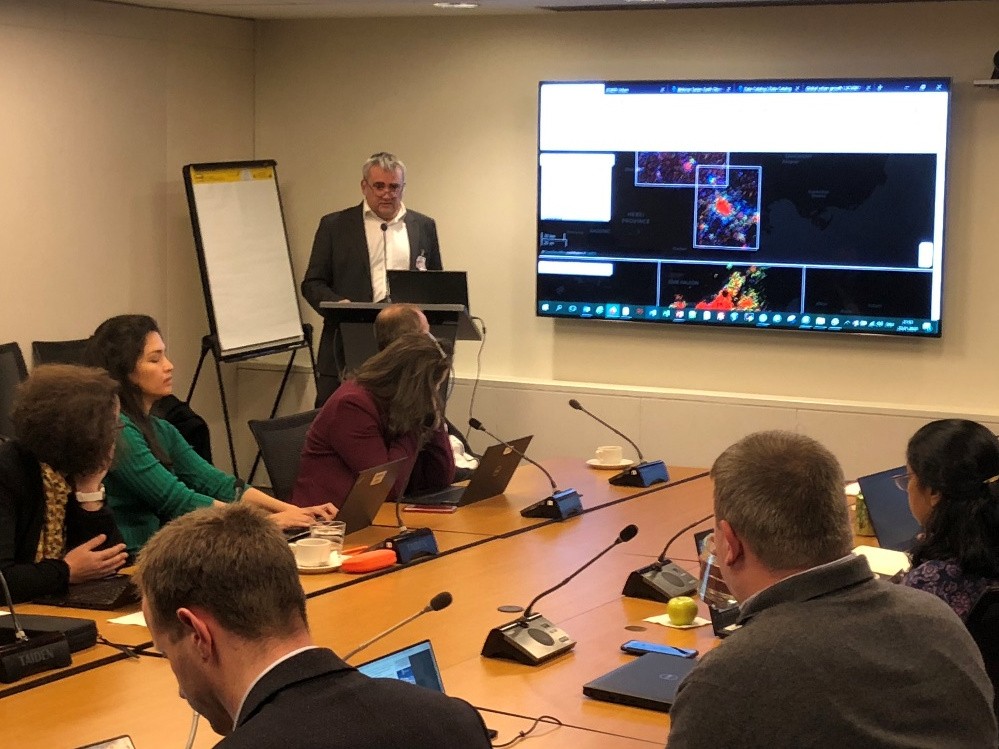
Recordings of the above-mentioned contributions are available from a dedicated page on the WB Open Learning Campus for day 1 and day 2, respectively.
